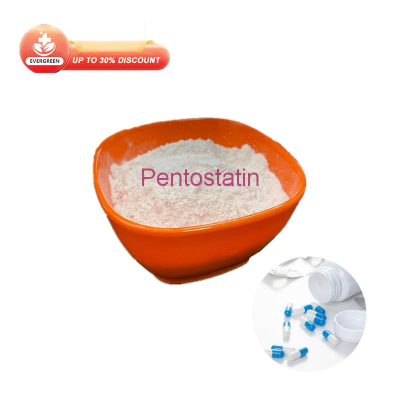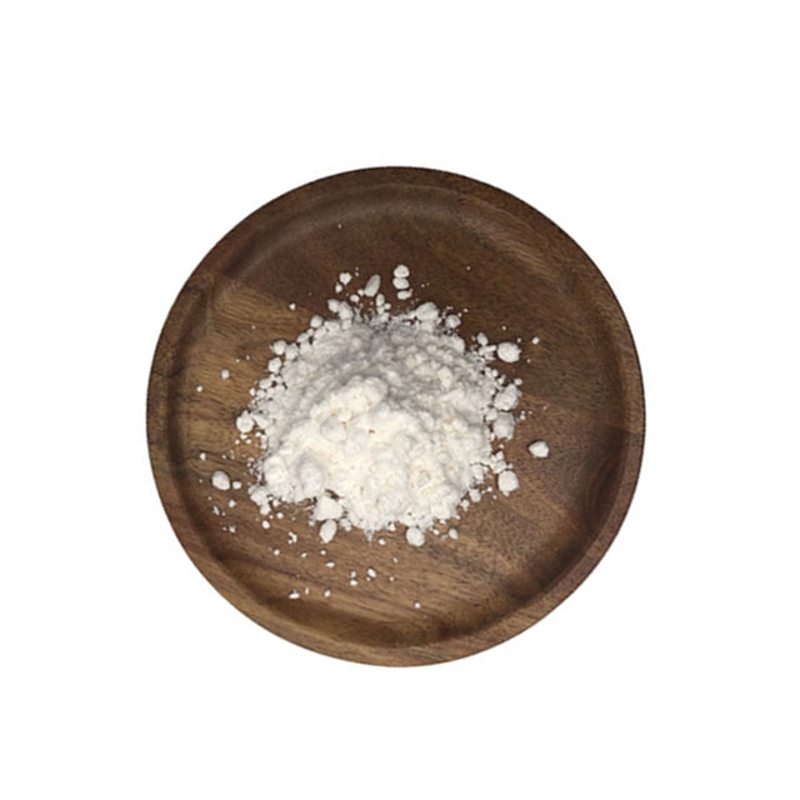-
Categories
-
Pharmaceutical Intermediates
-
Active Pharmaceutical Ingredients
-
Food Additives
- Industrial Coatings
- Agrochemicals
- Dyes and Pigments
- Surfactant
- Flavors and Fragrances
- Chemical Reagents
- Catalyst and Auxiliary
- Natural Products
- Inorganic Chemistry
-
Organic Chemistry
-
Biochemical Engineering
- Analytical Chemistry
- Cosmetic Ingredient
-
Pharmaceutical Intermediates
Promotion
ECHEMI Mall
Wholesale
Weekly Price
Exhibition
News
-
Trade Service
Obesity, which has become a worldwide "epidemic", is one of the most important public health problems of the 21st century and a major risk factor for a number of chronic diseases, including diabetes, cardiovascular disease and multiple cancers.
, once seen only in high-income countries, is now on a sharp upward trend in low- and middle-income countries.
Currently, obesity has been shown to be associated with an increased risk of dozens of cancers (lung, liver, pancreatic, thyroid, cervical, breast and colorectal cancers, etc.) as well as poorer prognosis and survival rates.
years, scientists have also identified obesity-related risk factors that can lead to tumor growth, such as metabolic changes and chronic inflammation.
, the detailed process of the interaction between obesity and cancer remains unclear.
Now, researchers from Harvard Medical School and their co-researchers have revealed the answer in a new study: obesity caused by a high-fat diet makes cancer cells win the battle against immune cells for metabolic "fuel."
researchers found that a high-fat diet reduced the number and anti-tumor activity of CD8-plus T cells in tumors, a cell that kills cancer cells, virally infected cells, and other damaged immune cells.
This is because cancer cells "redesign" their metabolic mechanisms to accommodate increasing fat, thus better grabbing energy-rich fat molecules from T-cells "hands" and accelerating tumor growth while inhibiting T-cell metabolism.
images , a high-fat diet interferes with the metabolism of CD8 plus T cells, thereby impairing their anti-tumor immunity (Source: Cell) Chart - Comparison of CD8 plus T cells (red) in tumor cells (blue-green).
Compared to tumors in obese mice (below), tumors in non-obese mice (above) contained more CD8 plus T cells (source: Cell) and they found that an increase in expression of PHD3, a protein shown in normal cells to inhibit excessive fat metabolism, could largely reverse the negative effects of a high-fat diet on tumor immune cell function and may have the potential to be a target for future treatments for many cancers.
paper, titled "Obesity Shapes Metabolism in The Tumor Microenvironment to Suppress Anti-Tumor Immunity," was published online in the scientific journal Cell. Marcia Haigis, a professor of cell biology at the Blavatnik Institute at Harvard Medical School and one of the authors of the
paper, said the findings suggest that one treatment that may be effective in one environment may no longer be effective in another, given the current prevalenm of obesity worldwide and the fact that CD8-T cells are the "main weapon" in immunotherapy that activate the immune system to fight cancer.
, the findings are of great theoretical value and suggest new strategies for improving this type of immunotherapy.
Obesity is so harmful that it can lead to serious health consequences, such as cardiovascular disease (mainly heart disease and stroke), type 2 diabetes, osteoarthritis and some cancers (endometrial, breast and colon cancer), which can cause severe disability and even premature death in obese people.
figures from the World Health Organization (WHO) show that the number of obese people in the world has nearly tripled since 1975; in 2016, more than 1.9 billion adults aged 18 and over were overweight, more than 650 million of whom were obese, and more than 340 million children and adolescents aged 5-19 were overweight or obese, and children and adolescents aged 5-19 were overweight and The prevalence of obesity rose sharply from just 4% in 1975 to more than 18% in 2016, with a similar rise among boys and girls, with 18% of girls and 19% of boys overweight;
same day, another study by Dr Tom Norris and his co-workers from Loughborough University in the UK also revealed the dangers of obesity to our health.
researchers analyzed body mass index (BMI) and cardiovascular metabolic disease risk factors from 20,746 respondents aged 10-40.
results show that the longer obesity lasts, the worse the values associated with cardiovascular metabolic risk factors (blood pressure, blood sugar, cholesterol, etc.), especially glycoglobin, an indicator used in diabetes diagnostic tests.
People with a history of obesity of less than five years have a 5 percent higher glycation of hemoglobin than those with a history of obesity of 20-30 years, a staggering 20 percent.
, the dangers of obesity are far greater than we think.
, as the incidence of obesity-related cancers continues to rise, research and exploration of the relationship between obesity and cancer is critical to future cancer prevention and treatment research.
Obesity has long been considered a major risk factor for cancer, and previous studies on obesity and cancer have focused on tumor introviral effects or endocrine tumor cell regulation axes, but it is not clear how differences in body metabolism alter tumor micro-environments and affect anti-tumor immunity.
Uncovering the "ticks" of obesity and cancer, researchers worked to reveal the effects of obesity on mice with different types of cancer (lung cancer, breast cancer, colorectal cancer, and melanoma, etc.) by providing a high-fat diet for different groups of mice -fat diet, HFD) and control diet (control diet, CD), where a high-fat diet can cause obesity symptoms and other obesity-related changes in mice, and different cell types and molecules in the tumor micro-environment, including the tumor's interior and surroundings, were observed.
results show that obesity induced by a high-fat diet can impair the function of CD8 plus T cells in the micro-environment of tumors in mice, accelerate tumor growth, and block this fat-related metabolic re-design can significantly reduce tumor volume and improve anti-tumor immunity in mice that passively accept high-fat diets.
high-fat diet inhibits the proliferation and activity of CD8-T cells in tumors.
A. Experimental setup schematic, mouse colon cancer model MC38; B-L. fluid cytometic analysis (for counting and sephobication of tiny particles suspended in fluids); and GZMB expression of CD8-plus tumor-infested lymphocytes (CD8-TILs) in M. N. Quantified tumors. Arlene Sharpe, co-author of the
(source: Cell) paper, Professor George Fabyan of Comparative Pathology at Harvard Medical School and head of the Department of Immunology at the Blavatnik Institute, says that while cancer immunotherapy has had a huge impact on patients' lives, not everyone can benefit.
We now know that there is a metabolic tug-war between T-cells and cancer cells, and who wins or loses changes with the body's obesity levels.
our research provides a roadmap for exploring this interaction, helping us think about cancer immunotherapy and combination therapies in new ways.
"since previous analysis of human cancer has revealed similar transcriptional changes in CD8-T cell markers, it is possible to develop an intervention that uses metabolism to improve cancer immunotherapy in the future.
In addition, the researchers found that animal tumors on high-fat diets grow faster than animals on a normal diet, but only in immunogenic tumors, which may contain large numbers of immune cells, are more easily identified by the immune system, and are more likely to trigger an immune response.
that differences in tumor growth associated with diet are particularly dependent on the activity of CD8-T cells.
, diet had no effect on tumor growth if CD8-plus T cells were eliminated in mice in the experiment.
even more surprising, the high-fat diet simply reduced the number of CD8-T cells in the tumor micro-environment, while the number of CD8-T cells in other parts of the body did not decrease.
also, those CD8-plus T cells that remain in the tumor micro-environment, although their activity is significantly reduced, re-establish normal activity when they are isolated and grown in the laboratory.
suggests that something in the tumor impairs the function of the CD8-T cells.
researchers also found a very obvious contradiction: in obese animals, while other areas are still rich in fat, the key free fatty acids (the cell's main fuel source) in the tumor micro-environment have been depleted.
these "clues" prompted researchers to map the metabolism of different cell types in tumors under normal and high-fat diets.
cancer cells respond to changes in the body's fat content, according to an analysis.
In a high-fat diet, cancer cells "design" metabolic functions to increase fat intake and utilization, but CD8-plus T cells do not, which leads to the depletion of certain fatty acids in the tumor micro-environment and reduced activity of T cells due to lack of this essential fuel. alison Ringel
a postdoctoral student at Haigis Labs and one of the study's co-authors, said the "contradictory" consumption of fatty acids was one of the study's most surprising findings.
" obesity and body metabolism can change the way different cells in tumors use fuel, a very exciting discovery, and our metabolic map allows us to dissect and better understand these processes.
" a potential cancer treatment target identified changes in many dietaryly related metabolic pathways in cancer cells and immune cells in tumor micro-environments using single-cell gene expression analysis, large-scale protein analysis, and high-resolution imaging.
particularly exciting finding is PHD3, a protein that has been shown in normal cells to inhibit excessive fat metabolism.
found that cancer cells in obese settings had significantly lower expressions of PHD3 than in normal environments.
same time, when they "forced" tumor cells to overexploit PHD, the ability of tumors in obese mice to "grab" fat decreased and the levels of key free fatty acids in the tumor micro-environment increased.
to increase the expression of PHD3 in tumor cells, which can improve CD8-T activity and inhibit tumor growth.
expression of PHD3 (Source: Cell) significantly reversed the negative effects of a high-fat diet on tumor immune cell function.
highly expressed tumors grew more slowly in obese mice than in low-expression tumors with PHD3.
this is a direct result of the increased activity of CD8-T cells.
in obese mice lacking CD8-plus T cells, differences in PHD3 expression did not affect tumor growth.
researchers analyzed the human tumor database and found that the low expression of PHD3 was associated with "cold" tumor cells (a small number of immune cells).
link shows that tumor fat metabolism plays an important role in human diseases, and that obesity reduces the body's immunity to anti-tumors for a variety of cancers.
"CD8 plus T cells are the focus of many precision cancer therapies, such as vaccine development, cell therapy (such as CAR-T).
these methods require T-cells to have enough energy to kill cancer cells, but at the same time we don't want tumors to have enough fuel to grow.
, we now have comprehensive data to study the dynamics and determination mechanisms that prevent T-cells from functioning as they should.
," sharpe explains.
researchers say the results provide a basis for a better understanding of how obesity affects cancer and the effects of body metabolism on treatment outcomes.
that while PHD3 is not yet the best therapeutic target, the discovery opens the door to a new strategy to fight cancer through metabolic defects.
"We can use these potential targets to prevent cancer and enhance immune anti-tumor function," he said.
our study provides a high-resolution metabolic map to explore insights into obesity, tumor immunity, and the inter-influence and competition between immune cells and cancer cells.
the future, there is more to explore.
," Haigis said.
addition, the study has certain limitations.
researchers say that while they have to some extent revealed proof that tumor cell transcription in high-fat diet mice inhibits anti-tumor immunity, it does not prove that it is caused by increased fat oxidation in cells in mouse colon cancer model MC38 cells;
therefore, further research is needed.
the root cause of mouth-to-mouth, leg-opening obesity and overweight is the energy imbalance between calorie intake and calorie consumption.
with the gradual improvement of living standards, people are rich







